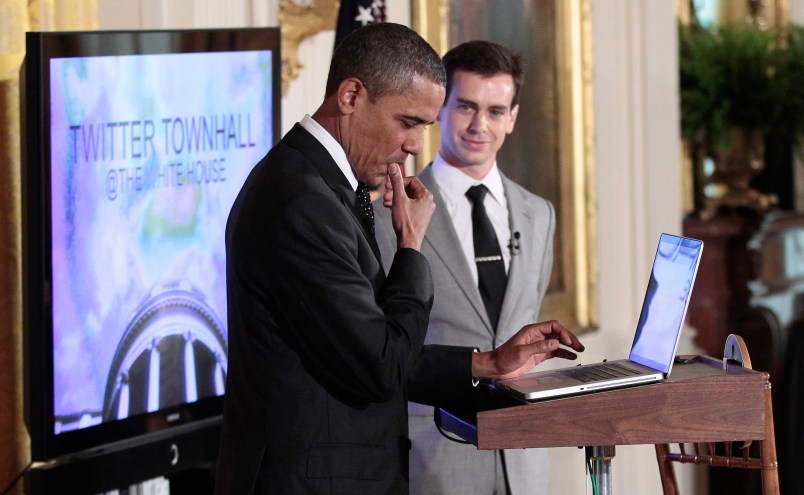President Barack Obama might have 50 million Twitter followers, but his campaign was playing to an audience of just a few hundred whenever it sent out a message on the social media platform during the 2012 presidential campaign, according to a study released Friday.
University of North Carolina assistant professor Daniel Kreiss reviewed in the study how the Obama and Mitt Romney campaigns used Twitter, Facebook and the other social networks during their run for the White House. The paper is filled with interest tidbits — a tweet from the Romney campaign eventually had to be approved by more than 20 people! — but the most striking item was this piece of real talk from Obama 2012 digital director Teddy Goff:
Most likely not one thing we did on Twitter persuaded any voter or even necessarily reached any undecided voter, but what it did do was, you know, reached the somewhat elite core of supporters and then very importantly reached reporters as well. So for Twitter we spent a lot of time thinking about how we could sort of manipulate the sort of national dialogue, the dialogue around politics.
While the Obama campaign was characterized by the relative autonomy of the social media team — they came up with their response to the Clint Eastwood speech at the Republican convention on the fly — the Romney’s digital arm was defined by its bureaucracy.
By the end of the campaign, Caitlin Checkett, a Romney digital staffer, said, 22 people were approving individual tweets and Facebook posts.
“The digital team unfortunately did not have the opportunity to think of things on their own and post them,” she said. “The downfall of that of course is as fast as we are moving it can take a little bit of time to get that approval to happen.”
Kreiss reported that the Obama team was not ready for the social media reaction to the first debate, where top journalists like BuzzFeed News’s Ben Smith declared Romney the winner within the first 40 minutes based on what was being said on Twitter.
So by the time the second debate came around, the campaign had drafted dozens of Tweets, based on what they expected Obama and Romney to say, to be sent out from accounts of high-profile (and well-followed) campaign personas like Jim Messina and David Axelrod.
Any advantage on the notoriously fickle Twitter stream was worth it, Goff said.
“I mean we would really think down to that hour or half hour about what could we do that is going to dominate Twitter for an hour or two,” he said, “because you get down to 30 days left if you could dominate Twitter for 2 hours, that is, you know, we will take it.”







Nothing surprising. Just shows they were astute enough to realize undecided voters and unlikely voters aren’t watching Twitter. It’s pretty much for influencing activists and the press. And the influence with activists is to get them to help influence the press.The pres wants to get stories out first and promote their articles. It’s not for the same audience watching the nightly TV news broadcast, let alone people who mostly skip the news altogether. Though I can’t blame the Romney team entirely for caution, given how often prominent people have embarrassed themselves with a dumb tweet.
Exactly. The only thing surprising here is that they had the audacity to say that, essentially, twitter is a great way to reach a tight little clique of people who call themselves journalists, but not much else.
That’s dangerously close to pointing out that Twitter Journalists live in their own reality, and boy, say something like that and twitter is going to go all abuzz.